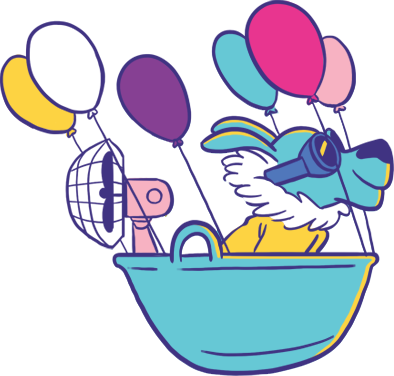Playful Learning Experts
The following are our tenets for designing playful learning experiences:

- Create a Spark
- A playful learning experience should be one that provides its own space to explore new ideas and get new information about the world. Ideally it is a launchpad into the child’s own world to look closer, ask more questions, think more deeply, and fuel a fire of curiosity and desire to learn.
- Reveal Hidden Wonders
- Through play, kids can see, feel, and listen to the world in ways that aren't possible or obvious in their real world. What does the bottom of a pond look like? What if I could control the weather? What happens if I put these together?
- Delight and Inspire
- Through humor, art, music, sound, and visual feedback, children can be delighted and encouraged to keep exploring, keep trying, and keep learning. This is best done by understanding all the ways kids can be rewarded in play (and often best comes from observing how kids play and respond to various play experiences).
- Explore New Perspectives
- Ideally a playful learning experience supports a variety of players through different modalities or play features. It’s possible to design something for the child who both loves open ended play and is a completionist. And, by providing various modes of engagement in one play experience, we might reveal new ways of thinking about or connecting to the content.
- Explore, Fail, Tinker, Try Again
- Playful learning experiences should provide many pathways to a solution, and should allow for graceful failure and self-regulated learning.
- Make Connections
- Playful learning experiences are rooted in connections to a child’s own world, or in revealing a world of another child (as an opportunity to understand, relate to, and celebrate differences). They can also be rooted in social learning with others, through collaborative play.
- Guided Play
- Designing for playful learning creates an opportunity to guide children in their play towards the intended learning outcomes, while still providing opportunities for agency and independence.
- Make the Play Your Own
- The play experience should allow the player to connect with the content by having a sense of agency in how to approach play or think about the play.
- Honor Kids Capabilities
- Kids are sophisticated and capable. A well designed experience will challenge a child while still ensuring developmental appropriateness.
